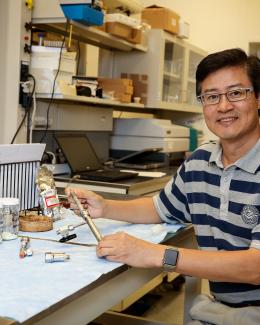Abstract
A new class of inorganic-based membranes, i.e., High-Performance Architectured Surface Selective (HiPAS) membranes, is introduced to provide high perm-selective flux by exploiting unique separation mechanisms induced by superhydrophobic or superhydrophilic surface interactions and “confined capillary condensation” in enlarged membrane pores (~8 nm). The super-hydro-tunable HiPAS membranes were originally developed for the purpose of bio-oil/biofuel processing to achieve selective separations at higher flux relative to size selective porous membranes (e.g., inorganic zeolite-based membranes) and better high-temperature tolerance than polymer membranes (>250°C) for hot vapor processing. Due to surface-enhanced separation selectivity, HiPAS membranes can thus possibly enable larger pores to facilitate large-flux separations by increasing from sub-nanometer pores to mesopores (2-50 nm) for vapor phase or micron-scale pores for liquid phase separations. In this paper, we describe an innovative membrane concept and a materials synthesis strategy to fabricate HiPAS membranes, and demonstrate selective permeation in both vapor- and liquid-phase applications. High permeability and selectivity were demonstrated using surrogate mixtures, such as ethanol-water, toluene-water, and toluene-phenol-water. The overall membrane evaluation results show promise for the future processing of biomass pyrolysis and upgraded product vapors and condensed liquid bio-oil intermediates.



